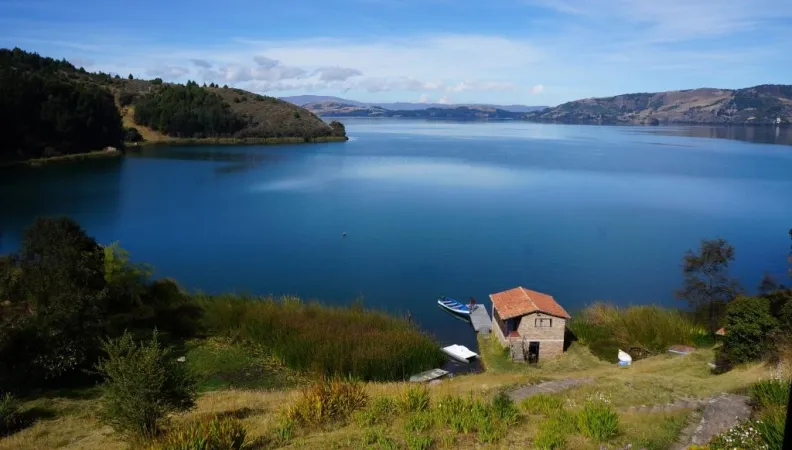Share the page
Water for all uses in Colombia
Project


-
Project start date
-
Status
Ongoing
-
Project duration
-
2 years
-
AFD financing amount
-
US$ 100000000
-
Country and region
-
Location
-
Colombia
-
Type of financing
-
Beneficiaries
-
Colombian State
Colombia has abundant but poorly distributed water resources. The lack of availability of these resources near cities is exacerbated by their poor quality, leading to serious tension which creates conflicts between water users. AFD is consequently supporting the Colombian Government’s integrated water resources management policy. A climate change adaptation project.
Context
Colombia has abundant but poorly distributed water resources. The access to these resources and its poor quality both lead to serious tensions which creates conflicts between water users.
Integrated water resources management (IWRM), providing for concerted uses based on a shared diagnostic for each watershed, is not operational, despite being partially set out in legislation since 1993. Indeed, the environmental authorities responsible for its implementation have produced few watershed management plans, often in lower-priority areas and almost always with no coordination with the municipalities and departments responsible for a large part of the investments.
The Government undertook a reform a few years ago, which is based on the integrated water resources management policy. It was finally approved by all water actors and the State in 2010. Its implementation via a short-term water plan is the purpose of this project.
Description
The financing comprises USD 100m of budget support to the Colombian State, a mechanism to monitor the implementation of the IWRM policy via key indicators and EUR 4.5m of technical cooperation financed by the European Union via the Latin American Investment Facility (LAIF). It is earmarked for the establishment of strategic plans, the implementation of a pilot project (Lake Tota) and environmental education.
Impacts
- Institutional and economic impacts: establishment of a clear sectoral framework which will allow a number of coherent investments to be made by all water actors in Colombia. Furthermore, the economic cost of the lack of availability of water resources (poor quality or insufficient low-water flow) is extremely high as it is estimated at 10% of Gross Domestic Product (GDP).
- Environmental impacts: improving the quality and quantity of water resources is the main environmental impact resulting from the IWRM policy.
- Social impacts: they are based on the reduction in water-related conflicts between populations, institutions and, in certain cases, actors in the productive sector, which can lead to armed conflict. Furthermore, disadvantaged populations are often those who suffer the most from the lack of availability of resources or floods. The reduction of these impacts should consequently benefit them more than better-off populations.


